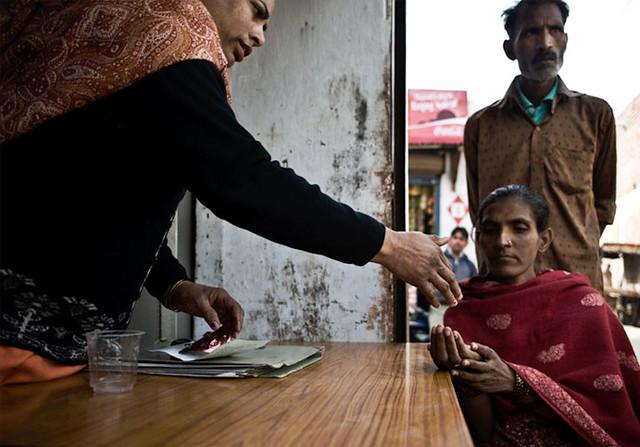Drug maker Johnson & Johnson (J&J) announced last week that it will not enforce secondary patents on a drug that's considered the backbone of shorter treatment regimens for multidrug-resistant tuberculosis (MDR-TB).
The announcement is the latest in a series of moves by the company that will make bedaquiline (marketed under the name Sirturo) more affordable for low- and middle-income countries (LMICs). In July, J&J granted the Global Drug Facility (GDF)—which was established by the Stop TB Partnership in 2001 to provide equitable access to TB treatments and diagnostics—license to tender, procure, and supply generic versions of the drug from generics manufacturers. The company's primary patent on bedaquiline expired at the end of July.
Then, in August, the company announced it will supply the GDF with bedaquiline at roughly half of its previous price, dropping the price to $130 per 6-month treatment course for nearly 100 LMICs, down from $289.
But TB activists and groups such as Medecins Sans Frontieres (MSF) have complained that a handful of countries with a high burden of MDR-TB that don't buy drugs through the GDF were excluded from those deals and would have to pay a higher price for the drug. They've been calling for J&J to stop enforcing secondary patents on bedaquiline in those countries.
J&J officials, who've rejected those claims, say this news is intended to assure current and future generics manufacturers that they can make and sell generic versions of bedaquiline without concern that the company will enforce its patents, as long as they are of good quality, medically acceptable, and used only in LMICs.
"This addresses any misperception that access to our medicine is limited or restricted and builds on our decade of investments in collaborative efforts to help countries sustainably scale up access and bring people living with MDR-TB into treatment," Howard Reid, J&J's head of Global Public Health & Social Impact, said in a company press release.
J&J said it will continue to invest in efforts to drive access and appropriate use of bedaquiline.
Critical drug in shorter regimen
The World Health Organization (WHO) estimates that 450,000 people globally are diagnosed with drug-resistant forms of TB each year. Bedaquiline is a key drug in two WHO-recommended treatment regimens for rifampicin-resistant and MDR-TB—BPaL (bedaquiline, pretomanid, and linezolid) and BPaLM (bedaquiline, pretomanid, linezolid, and moxiflacin). The 6-month, all-oral regimens are significantly shorter, less toxic, and more effective than previous regimens.
Christophe Perrin, PharmD, MPH, a pharmacist with MSF's Access Campaign, called the news a win for TB activists.
"We welcome J&J's announcement, which will finally pave the way for unfettered access to affordable generic versions of bedaquiline for all people living with DR-TB who need the drug in low- and middle-income countries," he said in a news release.
The news also comes on the heels of a recent announcement by diagnostics company Cepheid and parent company Danaher that they will reduce the cost of Cepheid's Xpert test cartridges, which are critical for rapid diagnosis of MDR-TB, by 20%.
"We need all newer TB innovations to be as affordable as possible so governments can scale up prevention, testing, and treatment to beat back this curable disease that continues to kill 1.6 million people every year," Perrin added. "People with TB cannot afford to wait any longer."

























